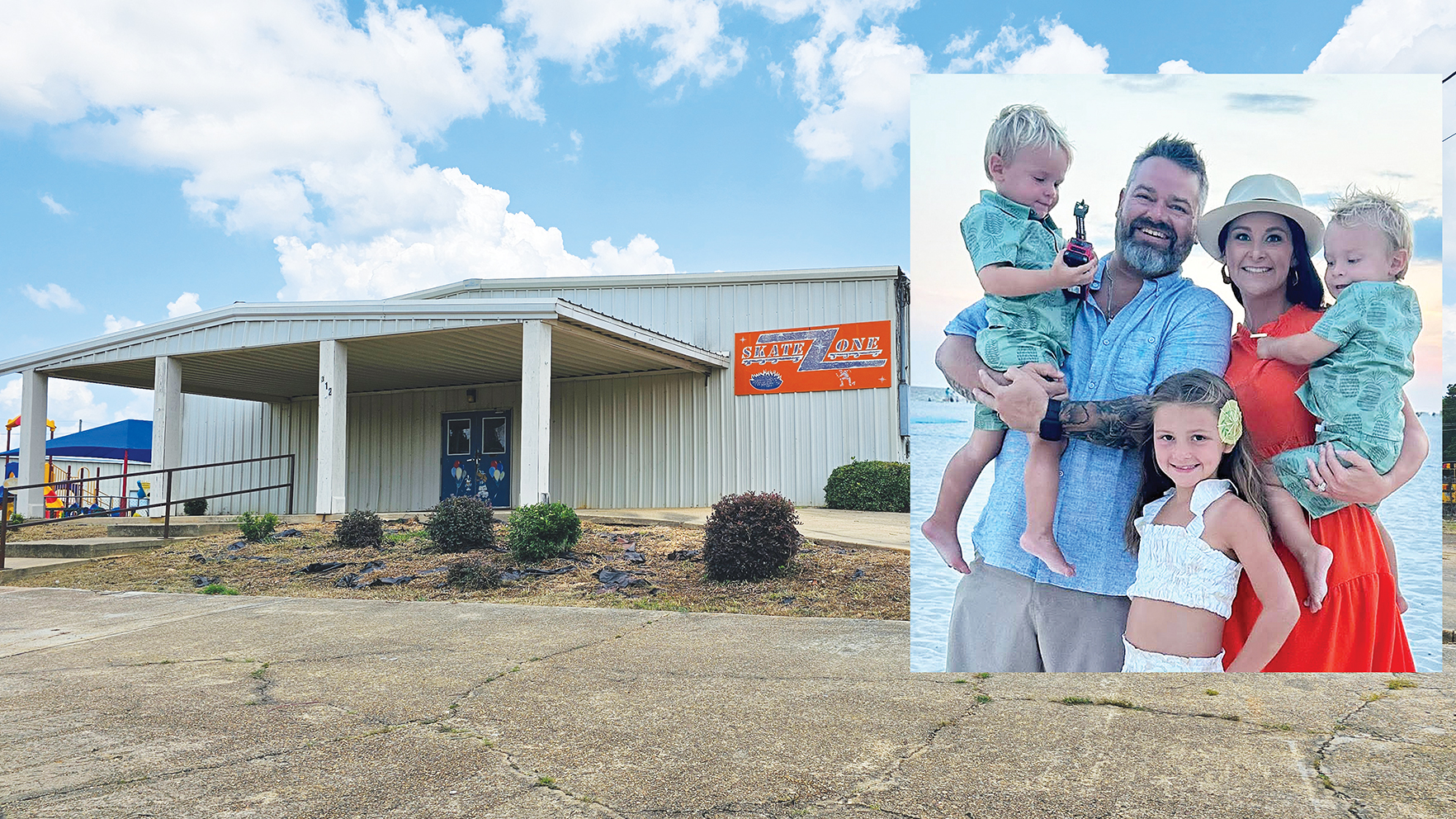Former resident ‘swoops’ skydiving record
Published 6:00 am Monday, December 29, 2008
Barely one month ago, 36-year-old Brookhaven native GregWindmiller made ready in the door of an aircraft cruising at 12,500feet above South Africa and dove out into the blue expanse,plummeting toward the African continent below.
He deployed his parachute low, pulled the ropes to sling himselfin wide circles to pick up speed and momentum and – only a few feetabove the ground – pulled upright and sailed into a competitioncourse consisting of a 75-degree curved path of 5-foot tallmarkers.
By the time his feet touched the ground at the opposite end ofthe course, Windmiller had set a world record for speed in theskydiving discipline of canopy piloting – also known as “swooping”- traveling through the 240-foot course at 92 mph in 2.33 seconds,taking himself, the U.S. Army and his hometown of Brookhaven intohistory.
Trending
It was his ninth and final jump at the 2008 World Championshipsof Canopy Piloting in Pretoria, South Africa, and one that was nearperfect. The record will stand untouched for at least two years, asthe next world match will not occur until 2010.
And, it was no sweat.
“Before I went up, I told someone I was going to break the worldrecord or do really bad,” said Sgt. 1st Class Windmiller. “Youdon’t want to finish mediocre. It’s kind of like I had nothing tolose.”
There was nothing to lose for Windmiller, save possibly hislife. A near-100 mph crash can be fatal, parachute or no. While thedangerous discipline of canopy piloting is still relatively new toWindmiller, he’s no novice under a parachute. He is an 18-yearveteran of the Army, and an eight-year member of the elite GoldenKnights U.S. Army Parachute Team.
“You never take a single jump for granted,” Windmiller said.”After every jump, you try to learn something. I’m still learning -nobody knows it all.”
Windmiller has come a long way since his days as a BrookhavenHigh School Panther. A product of the school’s class of 1990,Windmiller moved to Brookhaven from Missouri in time to start thereas a freshman. Though he lived in the West Lincoln area, heenrolled in the Brookhaven School District so he could playfootball, secretly using his grandfather’s address to qualify.
Trending
The 18-year-old Windmiller turned out to be a man of patriotismand decisiveness. He decided against college and joined the Armyimmediately after graduation, hoping for a chance to make adifference in the First Gulf War. He would go on to greatachievements 18 years later, but at first, Windmiller got the shortend of the stick.
“I told my recruiter the number one place I didn’t want to gowas Korea,” he said. “I basically went in and was sent straight toKorea.”
Things started looking up after his initial deployment.Windmiller returned to Fort Bragg, N.C., and successfully completedU.S. Army Ranger School in 1992 and the U.S. Army Military FreeFall School in 1994.
Skydiving was never his intention, Windmiller said, but aprerequisite for his desired posting and the main force, obviously,of free fall school.
“It was for the unit I was in,” Windmiller said of his decisionto become a jumper. “I had no idea about jumping until I joined theteam. Our job as a six-man team is to go 50-150 behind enemy lines.It was something I had to do.”
Upon completion of his training, Windmiller became a member ofan elite reconnaissance team, an LRSD – Long Range SurveillanceDetachment, initially attached to the historic 82nd AirborneDivision.
The unit accomplishes its mission using HALO – High Altitude LowOpening – tactics, where members jump from very high altitudes,free fall most of the distance and deploy their parachutes low overthe earth, a method meant to decrease a jumper’s potential time onan enemy radar screen and provide for stealthy insertions behindenemy lines.
The training, however, was tricky. Windmiller said the greatesthuman fear is of the unknown – not of drowning or spiders orsnakes.
“On my first jump, the instructor told me I would back up to thedoor and not look down,” he recalled. “But when I got to the door,he told me to look down. I didn’t look. He said it again. Andagain.”
Windmiller said he was so frightened at the moment of truth thathe almost stumbled backwards out of the airplane – the instructorgrabbed a fistful of his suit and caught him. He finally worked upthe courage to take the plunge, and he had to. Any refusal to jump,even on the first jump, results in immediate disqualification fromjump school.
It paid off.
“I was yelling and screaming the entire time, it was so fun,”Windmiller said of the first jump. “When I hit the ground, theinstructor said, ‘I hope you had a good time because you didn’t doanything I asked you to. Now that we got the fun one out of theway, I need you to listen to me.'”
Windmiller listened. Since that first jump more than a decadeago, he has logged 9,750 jumps.
“There’s anticipation, nervousness and excitement all in one,though I don’t get nervous anymore,” Windmiller said of theskydiving. “The sound of the engines running and the wind runningby the door just increases it. The very second you jump into thewind, it’s like when you jump into cold water and get that initialshock, but then the shock goes away.”
Windmiller said the only hard part about jumping now is thephysical act of getting on the airplane. He hates it. Hesarcastically pointed out that 100 percent of all airplaneaccidents happen when an airplane touches the ground.
“Until I land, to this day, I get sweaty palms,” he said. “I’dmuch rather jump out of an airplane than ride in one. When theairplane takes off, I don’t feel that good, but once it gets to asafe altitude – one where I can successfully jump – I get thatfeeling of relief.”
Strange that Windmiller’s relief comes when he is sailing towardthe ground under an extra-small parachute, competing in canopypiloting events. He had only a short amount of time to learn thecraft before setting the world record for speed – 2008 was thefirst year the Golden Knights participated in the event.
“The Army has never had an interest in it before because of thehistory and risk,” he said. “More people are killed in skydivingunder parachutes where there’s nothing wrong. The chutes used incanopy piloting are so small and so fast, if you make a mistake atlow altitude, you’re not going to walk away from it.”
Windmiller said the canopy piloting parachute is 96 square feet,whereas the standard Army parachute is 365 square feet. But theGolden Knights managed. At the American Canopy Piloting CircuitChampionships in Longmont, Colo., in August, Windmiller took firstplace while two other Golden Knights took second and third.
The Army trio bested the nation’s premiere civilian professionalskydivers. Since, as members of the Army, they could not accept the$5,000 grand prize, they donated it to the military’s WoundedWarrior Foundation.
Windmiller went on to the U.S. Nationals, where he earned a spoton the eight-man American team that went on to South Africa, wherehe broke the record and placed third overall in the world against70 competitors representing 19 countries.
Still, after accomplishing so much, Windmiller says he is aBrookhaven man through and through.
“I don’t claim Missouri,” he said. “This is my home – I have toomany friends and family here. When I’m on leave from the Army, thisis where I come.”
Windmiller said he has two years remaining in the Army before hecan retire with 20 years experience, but he said he loves his workso much he will probably stay in longer.
“If I can keep doing canopy piloting, I’ll probably stay in’till they pull me out kicking and screaming,” he said. “I lovewhat I’m doing. It’s a great feeling, getting to do something Ireally love by skydiving and representing the U.S. Army. It’s anhonor that I get to represent my brothers and sisters fightingoverseas.”
Windmiller is the son of West Lincoln’s Rob and DonnaWindmiller, and the grandson of Ima and the late Robert F.Windmiller. He is married to the former Emily Bonnabel.





